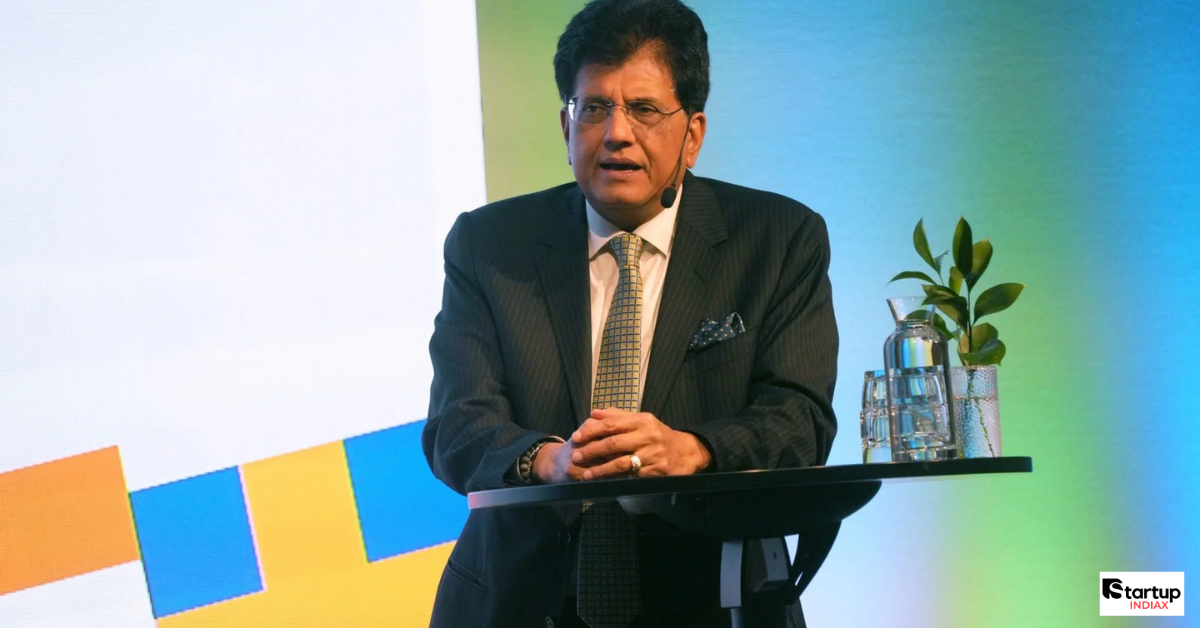India commits second tranche of ₹10,000 crore to support deep tech, a game-changing move announced by Piyush Goyal, India’s Minister of Commerce and Industry. This funding aims to propel Indian startups in cutting-edge fields like AI, quantum computing, and biotechnology, fostering innovation and global competitiveness. In this article, Startup INDIAX explores how this investment will empower entrepreneurs, the sectors it targets, and its role in India’s startup ecosystem. Learn why this initiative is a bold step toward making India a deep tech powerhouse and how it impacts founders and digital professionals.
Table of Contents
What Is the Second Tranche of ₹10,000 Crore for Deep Tech?
India commits second tranche of ₹10,000 crore to bolster deep tech startups, as announced by Piyush Goyal in 2025. This funding, part of a Fund of Funds, is designed to provide non-dilutive capital to DPIIT-recognized startups, ensuring they retain equity while scaling innovations. Deep tech, which includes technologies like artificial intelligence, quantum computing, semiconductors, and biotechnology, requires significant capital due to its high-risk, high-reward nature. This initiative signals India’s commitment to fostering groundbreaking innovation.
Why Is India Investing in Deep Tech?
India’s focus on deep tech stems from its potential to solve complex global challenges. With over 100,000 startups, India ranks third globally in startup ecosystems, but deep tech remains underexplored due to high R&D costs. The ₹10,000 crore fund aims to bridge this gap, enabling startups to develop solutions in critical areas like healthcare, energy, and space tech. According to a 2024 NASSCOM report, India’s deep tech sector could contribute $500 billion to the economy by 2030 if adequately supported.
Who Announced the Funding?
Piyush Goyal, India’s Minister of Commerce and Industry, announced the second tranche during a recent address, emphasizing India’s ambition to become a global deep tech leader. Goyal highlighted that the Fund of Funds will catalyze private investments, creating a ripple effect for innovation. His announcement aligns with the Modi government’s vision to position India as a hub for futuristic technologies.
How Will the ₹10,000 Crore Fund Impact Deep Tech Startups?
This substantial investment is a lifeline for deep tech startups, which often struggle with long development cycles and limited access to capital. The Fund of Funds model ensures that venture capital firms receive government backing to invest in high-potential startups, reducing financial risks.
Which Sectors Will Benefit from This Funding?
The funding targets a range of deep tech sectors, including:
- Artificial Intelligence (AI): Enhancing automation, healthcare diagnostics, and smart cities.
- Quantum Computing: Pioneering ultra-fast computing for cryptography and drug discovery.
- Semiconductors: Strengthening India’s chip design and manufacturing capabilities.
- Biotechnology: Advancing precision medicine and sustainable agriculture.
- Space Tech: Supporting satellite development and space exploration startups.
For example, Bengaluru-based startup QNu Labs, a quantum tech pioneer, could leverage such funds to scale its quantum-safe encryption solutions, competing globally.
What Are the Benefits for Startups?
The non-dilutive nature of the funding allows founders to retain control while accessing capital. Startups can:
- Accelerate R&D without immediate revenue pressure.
- Attract top talent in niche fields like AI and biotech.
- Partner with global firms, boosting India’s deep tech reputation.
A 2023 McKinsey report estimates that deep tech startups with stable funding are 40% more likely to achieve commercial success than those reliant on traditional venture capital.
How Does This Fit Into India’s Broader Startup Ecosystem?
India’s startup ecosystem is thriving, with over 1,200 new startups registered in 2024 alone, according to DPIIT. The ₹10,000 crore fund complements existing initiatives, creating a robust support system for entrepreneurs.
What Other Funding Initiatives Support Indian Startups?
Beyond the deep tech fund, the government has rolled out:
- ₹30,000 Crore Deep Tech Grant: Supporting R&D in cutting-edge technologies.
- ₹945 Crore Seed Fund Scheme: Helping early-stage startups validate ideas.
- Startup India Initiative: Providing tax benefits and regulatory ease.
These programs, combined with the new tranche, create a holistic ecosystem that nurtures startups from ideation to scale-up. Startup INDIAX has covered several success stories, like Hyderabad-based Skyroot Aerospace, which benefited from similar government-backed funding to launch India’s first private rocket.
How Does This Compare to Global Deep Tech Investments?
Globally, deep tech investments reached $200 billion in 2024, led by the US and China. India’s ₹10,000 crore (approximately $1.2 billion) is a fraction of this but significant for a growing ecosystem. For context, the US invested $80 billion in AI alone last year. India’s focused approach, however, prioritizes strategic sectors, giving it a competitive edge in niche areas like quantum computing and space tech.
What Challenges Might Deep Tech Startups Face?
Despite the funding, deep tech startups face hurdles like:
- High R&D Costs: Developing quantum or biotech solutions can take years and millions.
- Talent Shortage: India needs more skilled professionals in niche fields.
- Regulatory Delays: Complex approvals can slow down innovation.
For instance, a 2024 Deloitte study found that 60% of Indian deep tech startups cited talent acquisition as their biggest challenge.
How Can Startups Overcome These Challenges?
To succeed, startups should:
- Leverage Government Support: Use DPIIT programs for funding and mentorship.
- Collaborate with Academia: Partner with IITs and IISc for talent and research.
- Focus on Global Markets: Export solutions to offset domestic regulatory delays.
Startup INDIAX recommends that founders attend industry events like TechSparks to network with investors and policymakers, maximizing their access to resources.
Conclusion: Why This Matters for India’s Future
India commits second tranche of ₹10,000 crore to support deep tech, marking a pivotal moment for the nation’s startup ecosystem. This bold investment, championed by Piyush Goyal, positions India to lead in AI, quantum computing, and beyond. Entrepreneurs and digital professionals can seize this opportunity to innovate and compete globally. Join the conversation on Startup INDIAX—share your thoughts, connect with our community, or explore more inspiring Indian startup stories to fuel your entrepreneurial journey!

